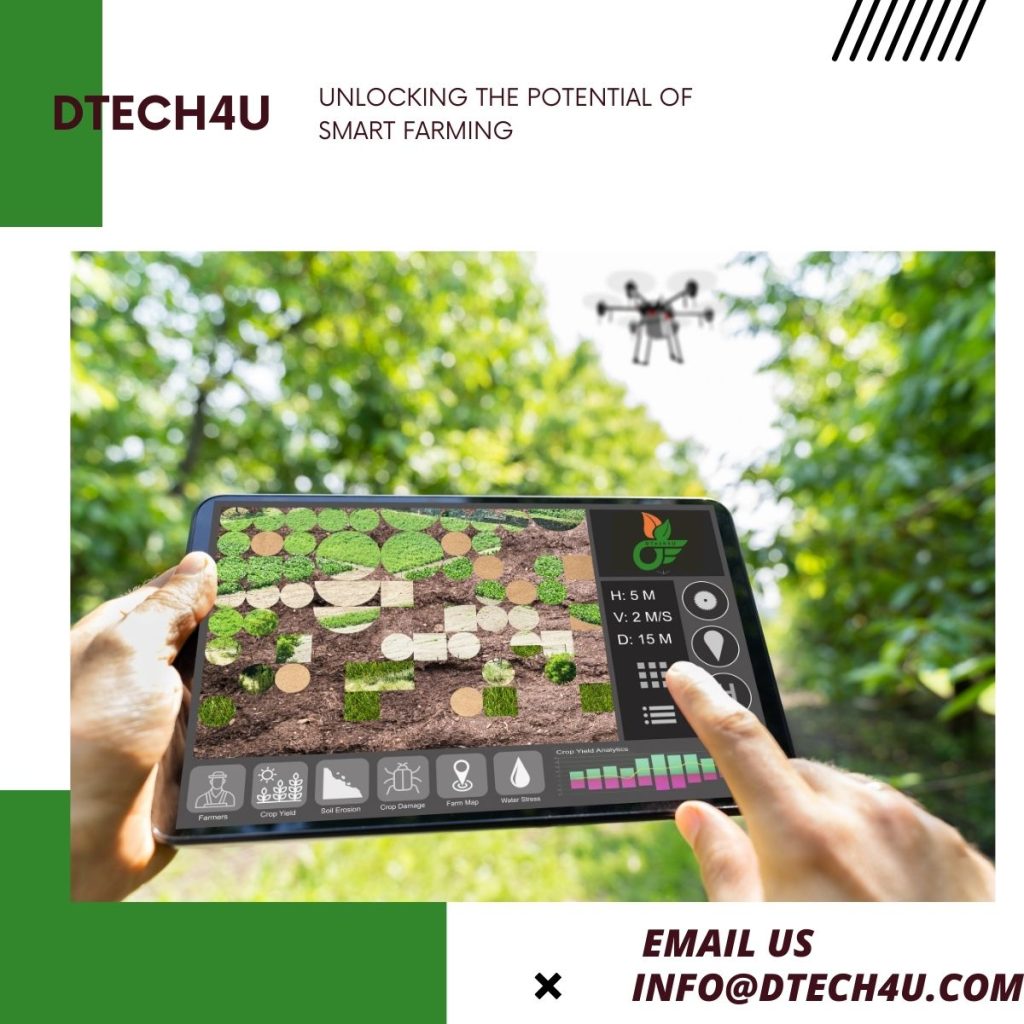Discover how the integration of AI and blockchain is revolutionizing agricultural management. Explore the benefits of smart farming, including increased efficiency, improved decision-making, and sustainable practices.
Introduction
The agriculture industry is undergoing a digital transformation, driven by advancements in technology. Among the most impactful innovations are Artificial Intelligence (AI) and blockchain. These technologies, when combined, have the power to optimize agricultural management and unlock the potential of smart farming. In this article, we will delve into the world of AI and blockchain in agriculture, exploring their benefits and the ways they are revolutionizing the industry.
1. Understanding AI and Blockchain
AI refers to the simulation of human intelligence in machines, enabling them to perform tasks that typically require human intelligence, such as data analysis, pattern recognition, and decision-making. On the other hand, blockchain is a decentralized and immutable ledger that ensures transparent and secure transactions.
2. Benefits of AI and Blockchain in Agriculture
The integration of AI and blockchain in agriculture offers numerous benefits:
2.1 Smart Farming: A New Era in Agriculture
Smart farming leverages AI and blockchain to optimize various agricultural processes, enabling farmers to make data-driven decisions, improve productivity, and minimize resource wastage.
2.2 Precision Farming with AI and Blockchain
AI-powered technologies, such as drones and sensors, collect and analyze real-time data, providing valuable insights for precision farming. Blockchain ensures the integrity and traceability of this data, enhancing transparency and trust.
2.3 Data-Driven Decision Making
AI algorithms process vast amounts of agricultural data, enabling farmers to make informed decisions regarding irrigation, fertilization, pest control, and crop rotation. Blockchain ensures the accuracy and transparency of this data.
2.4 Sustainable Practices in Agriculture
By optimizing resource usage and reducing waste, AI and blockchain contribute to sustainable agricultural practices. These technologies enable better monitoring of environmental factors and promote efficient use of water, fertilizers, and energy.
3. Smart Farming: A New Era in Agriculture
Smart farming represents a paradigm shift in agriculture, enabled by AI and blockchain. It combines advanced technologies, such as Internet of Things (IoT) devices, robotics, and AI algorithms, to create an interconnected and data-driven farming ecosystem.
4. Precision Farming with AI and Blockchain
Precision farming harnesses the power of AI and blockchain to achieve precise and targeted agricultural practices. AI algorithms analyze data collected from various sources, including sensors, satellites, and weather stations, to provide insights and recommendations for optimal resource allocation and crop management.
5. Data-Driven Decision Making
AI algorithms process large volumes of agricultural data, including historical data, real-time sensor data, and market trends. This data-driven approach enables farmers to make informed decisions based on accurate insights, leading to improved productivity and resource efficiency.
6. Sustainable Practices in Agriculture
AI and blockchain play a crucial role in promoting sustainable practices in agriculture. By optimizing resource usage, monitoring environmental factors, and enabling transparent supply chains, these technologies contribute to reducing the ecological footprint of farming operations.
7. Challenges and Future Opportunities
The integration of AI and blockchain in agriculture also brings challenges, including data privacy, technical complexities, and the need for farmer education and adoption. However, as technology continues to evolve and stakeholders collaborate, new opportunities for innovation, efficiency, and sustainability emerge.
8. FAQs (Frequently Asked Questions)
Q: How does AI improve crop yields?
Q: How does AI improve crop yields?
- A: AI algorithms analyze data from various sources, such as soil sensors and satellite imagery, to provide insights on optimal planting, irrigation, and harvesting techniques, resulting in improved crop yields.
Q: Can blockchain enhance food traceability?
A: Yes, blockchain ensures transparent and tamper-proof records of food-related information, enabling consumers to trace the origin and journey of agricultural products, ensuring food safety and quality.
Q: How does AI contribute to sustainable agriculture?
A: AI enables precision agriculture, minimizing resource wastage by providing accurate insights on resource allocation, pest control, and irrigation, promoting sustainable farming practices.
A: AI enables precision agriculture, minimizing resource wastage by providing accurate insights on resource allocation, pest control, and irrigation, promoting sustainable farming practices.
Q: Is AI and blockchain technology accessible to small-scale farmers?
A: While initial implementation costs can be a barrier, advancements in technology and collaborative initiatives are making AI and blockchain solutions increasingly accessible to small-scale farmers.
Q: What are the security considerations when using AI and blockchain in agriculture?
A: Implementing robust cybersecurity measures and ensuring data privacy are essential when adopting AI and blockchain technologies in agriculture to safeguard against potential risks.
Q: How can AI and blockchain improve supply chain management in agriculture?
A: By enabling transparent and traceable supply chains, AI and blockchain technologies enhance supply chain management, ensuring efficient tracking, authentication, and quality control of agricultural products.
9. Conclusion
The integration of AI and blockchain in agriculture marks a significant milestone in the industry’s digital transformation. Through smart farming, precision agriculture, and data-driven decision-making, AI and blockchain unlock the potential for increased productivity, sustainable practices, and improved resource efficiency. While challenges exist, the opportunities for innovation and positive impact are vast. As stakeholders collaborate and technology evolves, the agriculture industry is poised for a brighter, more sustainable future.


